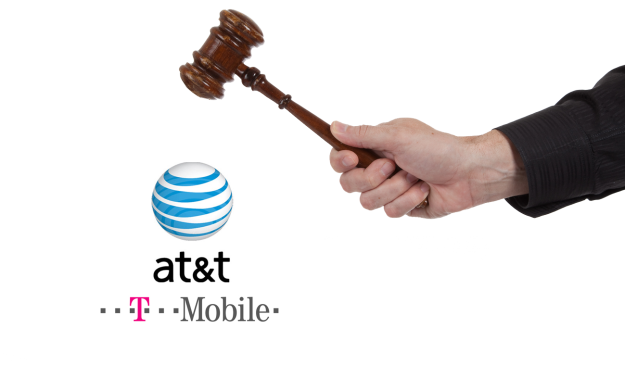
Sprint announced today that it has filed a lawsuit in an attempt to block AT&T’s planned acquisition of T-Mobile USA from German telecom giant Deutsche Telekom for $39 billion.
The suit, filed today in Washington D.C., follows an antitrust lawsuit by the US Department of Justice (DoJ), which also seeks to prevent the deal from going through. Sprint’s lawsuit was filed as a related case to the DoJ’s legal action, the company said.
“Sprint opposes AT&T’s proposed takeover of T-Mobile,” said Susan Z. Haller, vice president of litigation for Sprint, in a statement. “With today’s legal action, we are continuing that advocacy on behalf of consumers and competition, and expect to contribute our expertise and resources in proving that the proposed transaction is illegal.”
If AT&T’s merger with T-Mobile is allowed to go through, AT&T would become the largest wireless provider in the US, which 43 percent of all wireless customers under its domain. Verzion, which is currently number one, would become number two if the deal is allowed to proceed.
Together, AT&T and Verizon would control 90 percent of all wireless customers in the US — a duopoly that the Justice Department says would be bad for competition and, therefore; bad for consumers. This is essentially the same reasoning Sprint has taken in its lawsuit.
According to Sprint’s statement, “a combined AT&T and T-Mobile would have the ability to use its control over backhaul, roaming and spectrum, and its increased market position to exclude competitors, raise their costs, restrict their access to handsets, damage their businesses and ultimately to lessen competition.”
Sprint, which is currently the third largest provider, arguably has the most to lose if the AT&T/T-Mobile deal proceeds as planned, as they would be left far behind in terms of customers and resources. Because of its vulnerable position, Sprint has reportedly spent amble dollars on lobbyists in Washington to persuade the federal government to block the merger.
In response to Sprint’s lawsuit, AT&T issued a statement, which criticizes its competitor for taking legal action, and reclaims its stance that the merger is good for wireless customers. It reads:
“This simply demonstrates what we’ve said all along – Sprint is more interested in protecting itself than it is in promoting competition that benefits consumers,” AT&T said. “We of course will vigorously contest this matter in court as AT&T’s merger with T-Mobile USA will: help solve our nation’s spectrum exhaust situation and improve wireless service for millions; allow AT&T to expand 4G LTE mobile broadband to another 55 million Americans, or 97% of the population; and result in billions of additional investment and tens of thousands of jobs, at a time when our nation needs them most.”
Even without the Sprint lawsuit, history shows us that few mergers are approved after the DoJ moves to block the business deal. Both the Department of Justice and the Federal Communications Commission must approve the merger before the companies may move forward.


